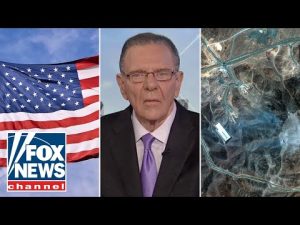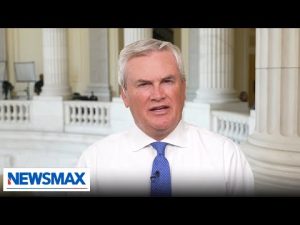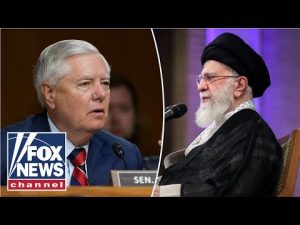In recent discussions surrounding a significant military operation linked to Iran, notable figures have expressed their strong support for President Trump’s leadership and decision-making. The mission, which apparently led to devastating effects on Iran’s nuclear capabilities, has been met with enthusiasm from various quarters, including prominent officials and pundits. Tammy Bruce, a spokesperson for the State Department, has been vocally supportive of the mission’s success and the positive implications it holds for not just the Middle East, but the entire world.
At the heart of this narrative is the idea that the mission was a landmark operation, drawing praise for its execution and the strategic planning behind it. Bruce highlighted the complexities involved in such an endeavor, indicating that it was imperative for the public to understand the full scope of the operation only once it was safely completed. The excitement in the air is palpable; many supporters feel this represents the kind of leadership they had hoped to see from President Trump, alongside the dedicated professionals who assisted in executing the mission.
As the dust settles on this operation, critics from various media outlets appear to remain skeptical, with some analysts suggesting they are grasping at straws to undermine the success story. The relationship between Israel and the U.S. has been underscored as a crucial element in achieving this victory, with both nations purportedly acknowledging the major blow dealt to Iran’s nuclear ambitions. This cooperation embodies a larger strategic objective, aiming to secure peace and safety not just in the region, but globally.
There seems to be a consensus among some senators from both sides of the aisle regarding the importance of this military action. A recent intelligence briefing featured remarks by Senate leaders who acknowledged that this operation strengthens America’s position and reduces risks posed by Iran. Yet, some are calling for further clarity on the success of obliterating significant nuclear stockpiles. This call for clarity showcases the complexities of military operations, where the minutiae aren’t always immediately accessible, and patience might be required to unveil the complete picture.
The mission’s historical significance cannot be understated, as it reportedly lays the groundwork for future ceasefires and potential peace in a tumultuous region. The idea that this victory might improve lives brings a sense of optimism to many supporters. Moreover, discussions surrounding the “unsung heroes” of the operation—the engineers and strategists who meticulously planned the attack on the Fordo facility for over a decade—serve as a reminder of the dedication and teamwork inherent in successful military endeavors. Such stories of commitment may very well lend themselves to exciting narratives, possibly even a movie one day, reminding us of the power of patriotism and determination in the face of global challenges.
In the end, as conversations swirl around the mission and its aftermath, it’s clear that the military operation has sparked a significant amount of discussion and debate. Supporters of the administration are reveling in what they consider a moment of triumph, while critics continue to raise questions about its implications. Nevertheless, the operation has undoubtedly shifted the landscape, offering a glimpse into the potential for peace and a more stable future. As time unfolds, the full impact of this mission will continue to emerge, much like a thrilling plot twist in an unfolding story.







